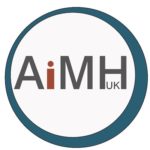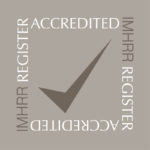The need for an interdisciplinary course on infant mental health and wellbeing reflects the growing awareness of the crucial role of early childhood internationally and is aligned to the wider policy developments included in the Best Start for Life Offer that is being implemented across England. This programme, which has been accredited by AIMH, a world leading organisation in this field, will have relevance to practitioners employed in the new family hubs, mother and baby psychiatric units and early help centres. It also addresses the recent development of the NHS Perinatal Mental Health Care Pathways.
The Postgraduate Certificate in Advanced Practice in Infant Mental Health and Wellbeing will offer you the opportunity to critically reflect on contemporary issues facing infants and their parents/carers. You will explore concepts such as brain development, attachment theory, the most current cutting edge knowledge on research into the factors impacting on parental and infant health and wellbeing. You will also explore the role of poverty, class and culture in how these shape experiences. These concepts cannot be covered without reflecting on your own journey in life, your own perceptions and conceptions of others. Therefore, so much of this course will be about you, encouraging you to hold the mirror up to yourself and have time and space to reflect on how your values and beliefs impact on your views on infant mental health and wellbeing.
Engaging on the Postgraduate Certificate in Advanced Practice in Infant Mental Health and Wellbeing is a great opportunity to develop key skills, knowledge and expertise to enhance the lives and outcomes of infants and their families. You will develop key interpersonal skills in engaging and developing relationships with infants, families and parents/carers. By doing so you will have a better understanding of the infant-parent/carer dyad and understand the critical role of attachment.
Students on the infant’s mental health and wellbeing programme come from a range of professional backgrounds, whether this be nursing, midwifery, social work, health visiting, early years, or education to name but a few. Despite your different backgrounds you will all engage in an exciting course which will ensure strong inter-professional, multi-disciplinary and collaborative learning for all students that is aligned to the Interprofessional Education (IPE) agenda. The programme will provide development opportunities for those already working in this area, as well as attracting those looking for future employment, or being employed in, the new employment roles that will emerge in family hubs and mother and baby psychiatric units.
You will be taught by practitioners and academics from a variety of expert backgrounds ranging from child development, early years, midwifery, health visiting, attachment and psychology.
Continuing Professional Development (CPD)
For those of you wishing to complete the single standalone modules as CPD you will receive the same high quality, in depth, analytical and critically challenging teaching that those on the non CPD route.
The primary difference is that you will not be required to complete the assessed items at the end of the modules. This can be particularly appealing to those of you who would prefer to just update their specialist knowledge of infant mental health and well-being, without the pressure of assessment. Whichever route you take, whether it be CPD or non CPD this will be an exciting and challenging course/module.


